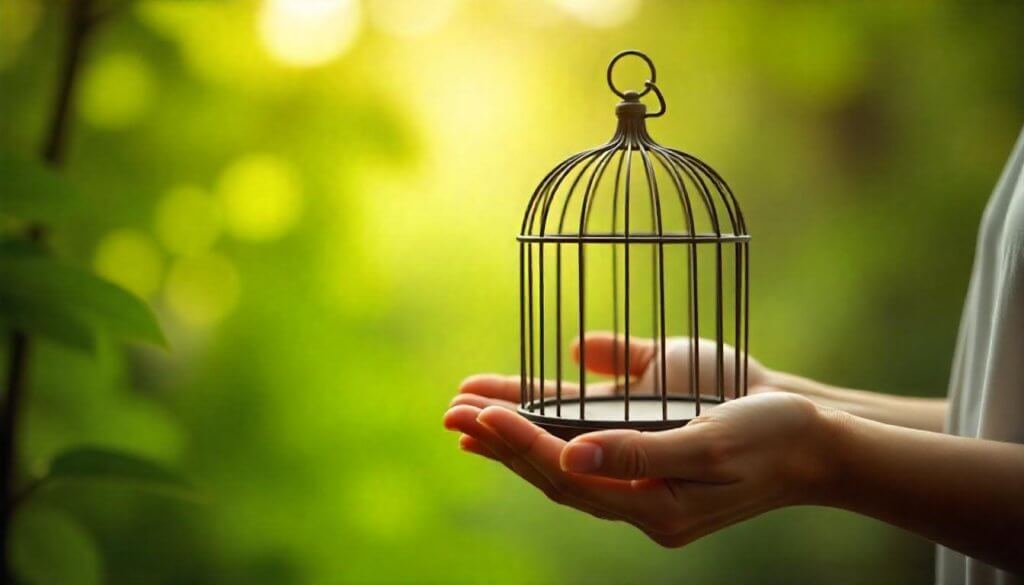Stress is an undeniable, often pervasive, element of modern life. From demanding careers and financial anxieties to health concerns and family responsibilities, external pressures can often feel relentless. While individuals typically focus on managing their personal responses to stress, its impact inevitably reverberates through their most significant relationships. The challenge for couples then becomes not merely surviving stress, but consciously striving to keep Stress Romance Alive, nurturing their connection even when the world feels overwhelming.
Indeed, navigating difficult periods demands significant emotional energy, which often leaves little room for the thoughtful gestures, playful interactions, and deep conversations that fuel romance. However, it is precisely in these challenging moments that a strong, loving bond becomes an indispensable source of support and stability. This article explores how external pressures can impact relationships. It offers practical, actionable strategies for couples to protect intimacy, foster profound connection, and ensure their romantic bond not only endures but thrives, even amidst the most trying circumstances.
The Silent Erosion: How Stress Impacts Romance
Stress, often an invisible assailant, can silently erode the foundations of romance and intimacy in a relationship. Its effects are far-reaching, influencing communication, emotional availability, and overall connection.
Firstly, stress manifests physically and emotionally as irritability, exhaustion, and reduced patience. When individuals are overwhelmed, their emotional bandwidth shrinks, making them less tolerant of minor frustrations and more prone to snapping at their partner. This constant state of agitation can make a home feel less like a sanctuary and more like another source of pressure.
Furthermore, stress significantly impacts communication. Exhaustion often leads to less active listening and more defensiveness. Conversations can become transactional, focused on logistics or complaints, rather than genuine emotional exchange. Partners might find themselves talking at each other instead of with each other, missing crucial cues of distress or unmet needs.
Moreover, a common casualty of prolonged stress is a decreased desire for intimacy, both emotional and physical. When one’s mind is consumed by worries, the capacity for playful banter, tender moments, or sexual connection often diminishes. Partners might also tend to withdraw from each other, seeking solace in isolation, or conversely, might unconsciously project their stress onto their partner through blame or criticism. This creates a destructive cycle. Therefore, recognizing stress as a “we” versus “me” problem, something to be tackled together, is essential for preserving the Stress Romance Alive dynamic.
Communication: The First Line of Defense
In the face of overwhelming stress, communication transforms from a simple exchange of information into the first and most critical line of defense for a relationship. It is the conduit through which couples can actively keep Stress Romance Alive.
Firstly, openly acknowledging stress and its sources is paramount. Instead of bottling up worries or assuming your partner knows, articulate what you are feeling and why. Saying, “I’m feeling really overwhelmed by work deadlines right now,” is more effective than passive-aggressive behavior. Active listening then becomes crucial. When your partner shares their stress, truly hear them without judgment, interruption, or immediately trying to “fix” the problem. Sometimes, just feeling heard is enough.
Furthermore, scheduling dedicated “check-in” times, even brief ones, can be incredibly beneficial. This might be a 15-minute conversation over coffee each morning or a nightly debrief. This ensures that even amidst chaos, you create space to connect emotionally. Avoid stress “dumping” without a solution-oriented approach. While sharing is good, consistently unloading negativity without also discussing potential strategies or asking for specific support can become draining.
Finally, learning to ask for and offer specific support empowers both partners. Instead of vague requests like “Just help me,” try, “Could you take care of dinner tonight? I’m swamped.” Similarly, offer concrete help: “What’s one thing I can take off your plate today?” This intentional and clear communication reduces guesswork and reinforces a sense of teamwork, ensuring love remains prioritized amidst pressure.
Protecting Intimacy: Small Gestures, Big Impact
When stress consumes time and energy, grand romantic gestures often become impractical. However, protecting intimacy and keeping Stress Romance Alive thrives on the consistent, often small, gestures that affirm love and connection.
Firstly, prioritize physical touch that isn’t necessarily sexual. Simple actions like holding hands, spontaneous hugs, a comforting arm around the shoulder, or cuddling on the sofa can release oxytocin, fostering feelings of warmth and connection. These seemingly minor acts are powerful reminders of your physical bond.
Furthermore, consciously schedule “mini-dates” or intentional alone time together. This might be a quiet cup of tea before bed, 20 minutes of reading side-by-side, or a short walk around the block. These brief, dedicated moments demonstrate that despite external pressures, your relationship remains a priority. Expressing appreciation and gratitude verbally is also incredibly impactful. A simple “Thank you for handling that” or “I really appreciate you” can counteract the negativity stress brings and make your partner feel seen and valued.
Moreover, revisit shared memories and sources of joy. Looking at old photos, recounting funny anecdotes, or reminiscing about cherished experiences reminds you both of the foundation of your love and the resilience you’ve already demonstrated. Finally, never underestimate the power of thoughtful, spontaneous acts. Bringing home a favorite snack, sending a loving text during the day, or leaving a sweet note can unexpectedly brighten your partner’s mood and reinforce your affection. These small efforts build a reservoir of goodwill, crucial for weathering stressful periods.
Teamwork Through Adversity: Facing Stress Together
When stress strikes, it can feel isolating. However, viewing challenges as a shared adversary, rather than something one partner brings to the table, strengthens the relationship. This approach is key to keeping Stress Romance Alive through shared struggle.
Firstly, frame stress as a collective challenge that you both face, not a personal fault of one partner. Instead of “Your job is stressing me out,” try “This situation with work is really stressing us out. How can we tackle it?” This fosters a united front against external pressures.
Furthermore, actively divide tasks and responsibilities to lighten the load during stressful periods. If one partner is overwhelmed by work, the other can temporarily take on more household chores or family duties. This requires flexibility and a willingness to step outside traditional roles. Problem-solving collaboratively is also essential. When facing a financial crunch or a health issue, sit down together to brainstorm solutions, weigh options, and make decisions as a team. This mutual effort reduces individual burden and strengthens confidence in your collective ability to overcome obstacles.
Moreover, celebrate small victories as a team. Acknowledging progress, however minor, in managing stress or resolving a specific issue reinforces your combined strength. “We got through that tough week,” or “We found a solution to that bill,” are affirmations of your partnership. Maintaining a united front against external pressures sends a clear message that your relationship is a safe haven, a place of shared resilience where you face the world together.
Self-Care for Two: Nurturing Individual and Shared Well-being
Maintaining Stress Romance Alive requires attention not only to the relationship itself but also to the individual well-being of each partner. Self-care, both individual and shared, becomes a fundamental strategy.
Firstly, recognize the importance of individual self-care. When you are depleted, you have less to give to your partner and the relationship. Prioritize activities that replenish you, whether it’s reading, exercise, spending time alone, or connecting with friends. A well-rested and emotionally regulated individual is better equipped to show up fully for their partner.
Furthermore, engage in shared self-care activities. Take walks together, cook healthy meals, practice mindfulness, or pursue a relaxing hobby like gardening or listening to music. These activities not only reduce stress but also create positive shared experiences that deepen connection. Prioritizing essential habits like adequate sleep and healthy eating can significantly impact your mood and resilience, both individually and as a couple. Stress often disrupts these vital routines, so conscious effort is necessary to maintain them.
Moreover, learn to recognize the signs of burnout in yourself and your partner. Persistent fatigue, cynicism, or withdrawal are indicators that more intentional self-care is needed. Openly discussing these signs and encouraging each other to prioritize well-being reinforces mutual support. Ultimately, the link between individual well-being and relational health is undeniable. When partners prioritize their own health, they contribute to a healthier, more vibrant relationship capable of weathering any storm.
Navigating Conflict Under Pressure
Stress, by its very nature, heightens emotions and reduces patience, making conflict resolution significantly more challenging. To keep Stress Romance Alive, couples must adapt their approach to disagreements during these periods.
Firstly, understand that stress exacerbates conflict. What might be a minor irritant on a good day can become a major argument when both partners are overwhelmed. Acknowledge this reality and grant each other extra grace. Establish “grace periods” where you consciously choose to overlook small slights or minor annoyances, understanding they stem from stress, not malice.
Furthermore, learn to take breaks during arguments when emotions run too high. Agree on a signal to pause, step away for a set time (e.g., 20 minutes), and then reconvene when calmer. This prevents destructive escalation. Focus on underlying needs, not just surface-level complaints. Often, an argument about a messy house is really about feeling unsupported or unheard. A therapist can help identify these deeper needs.
Moreover, practice repair attempts and forgiveness. After an argument, even a small gesture like an apology, a hug, or a humorous comment can help mend the rift. Be willing to forgive quickly and move forward. Finally, know when to seek professional mediation. If conflicts become frequent, intense, or unresolved, couples therapy can provide a safe space and tools to navigate disagreements constructively. A therapist can help identify destructive patterns and guide conversations towards resolution, protecting the relationship from persistent stress-induced conflict.
Reigniting Passion: Intentional Efforts
In stressful times, passion can seem like a luxury, easily overshadowed by daily demands. Yet, intentional efforts to reignite it are crucial for keeping Stress Romance Alive and maintaining the vibrant core of the relationship.
Firstly, prioritize sexual intimacy, even when tired or preoccupied. While it may not always be a grand, spontaneous event, making time for physical connection strengthens bonds and releases tension. This might mean scheduling intimacy or simply being more intentional about initiating touch. Experimenting with new ways to connect physically, beyond traditional intercourse, can also add novelty and excitement. This could involve extended foreplay, sensual massages, or simply prolonged cuddling.
Furthermore, consciously reintroduce flirting and playful interactions. These lighthearted exchanges remind you of the fun and attraction that first drew you together. Small jokes, teasing, or compliments can lighten the mood and create moments of joy amidst stress. It’s also beneficial to remind each other of what initially attracted you. Recalling early memories, discussing shared dreams, or remembering the qualities you admire most in your partner can rekindle appreciation.
Finally, create “stress-free zones” in your home or schedule. This might be a specific evening each week where work talk is banned, or a dedicated corner of your home designed for relaxation and connection. These intentional boundaries protect the sanctity of your shared romantic space. By actively making time and effort for passion, you send a clear message that your relationship’s vitality remains a top priority.
The Long-Term Rewards of Keeping Stress Romance Alive
The efforts invested in keeping Stress Romance Alive during difficult periods yield profound and lasting rewards, building a relationship that is not just resilient but truly transformative.
Firstly, couples who navigate stress together build incredible resilience. They learn that they can face adversity as a united front, strengthening their collective ability to overcome future challenges. This shared experience deepens emotional intimacy and trust, as partners witness each other’s vulnerability, support, and unwavering commitment during tough times. The bond forged through shared struggle is often more profound than that developed during smooth sailing.
Furthermore, by actively addressing communication breakdowns and practicing conflict resolution under pressure, couples strengthen these essential skills for all future interactions. They learn effective ways to express needs, listen empathetically, and find common ground. This means the relationship not only survives stress but actually thrives, emerging stronger, more communicative, and more deeply connected than before.
Finally, a relationship that can keep Stress Romance Alive becomes a vital source of strength and stability in an unpredictable world. It provides a secure base, a safe haven where both partners can find comfort, understanding, and unwavering love, making the journey of life, even with its inevitable stresses, feel more manageable and meaningful.
Conclusion
Stress is an undeniable force that can challenge even the strongest relationships. However, by embracing intentional strategies, couples possess the power to not only withstand these pressures but to actively keep Stress Romance Alive. This involves prioritizing open and empathetic communication, nurturing intimacy through small, consistent gestures, and consciously facing adversity as a unified team.
Investing in your romantic connection during trying times is not a luxury; it is an essential act of self-preservation and mutual care. By actively nurturing your love, even when it feels challenging, you transform adversity into an opportunity for deeper understanding, enhanced resilience, and ultimately, a more profoundly romantic and enduring partnership.













